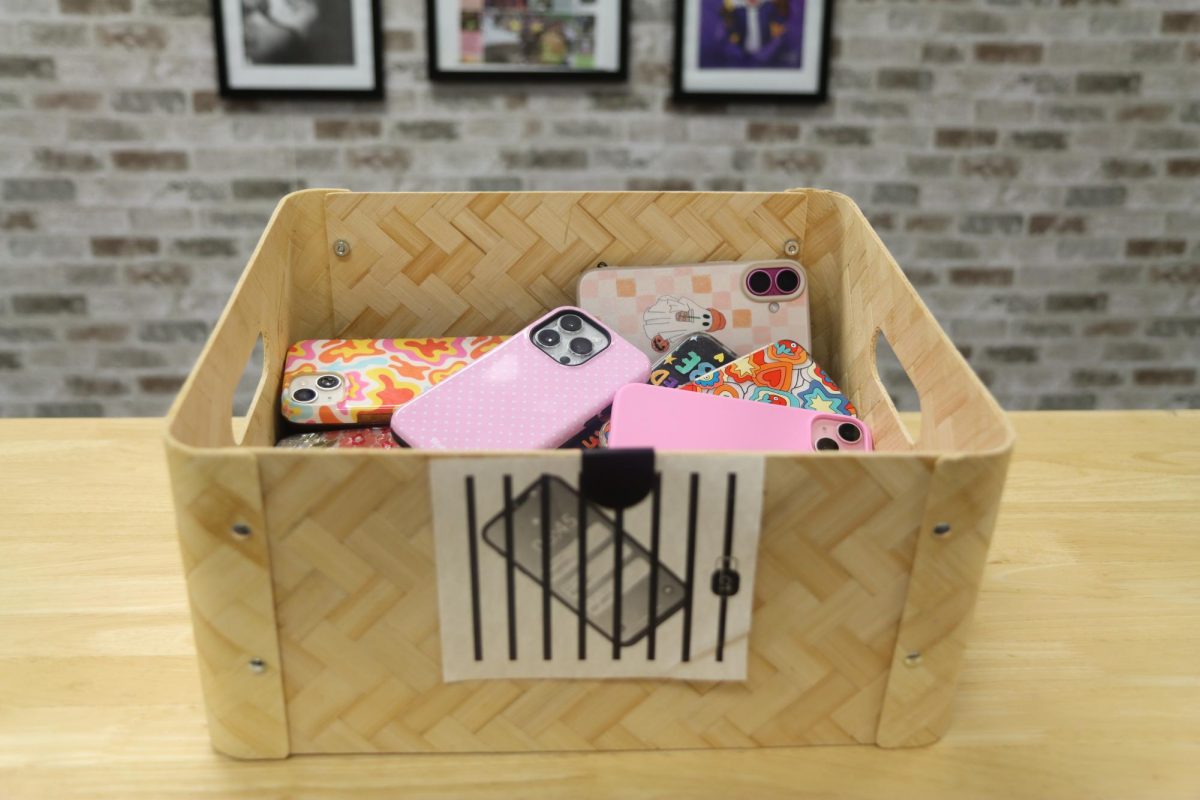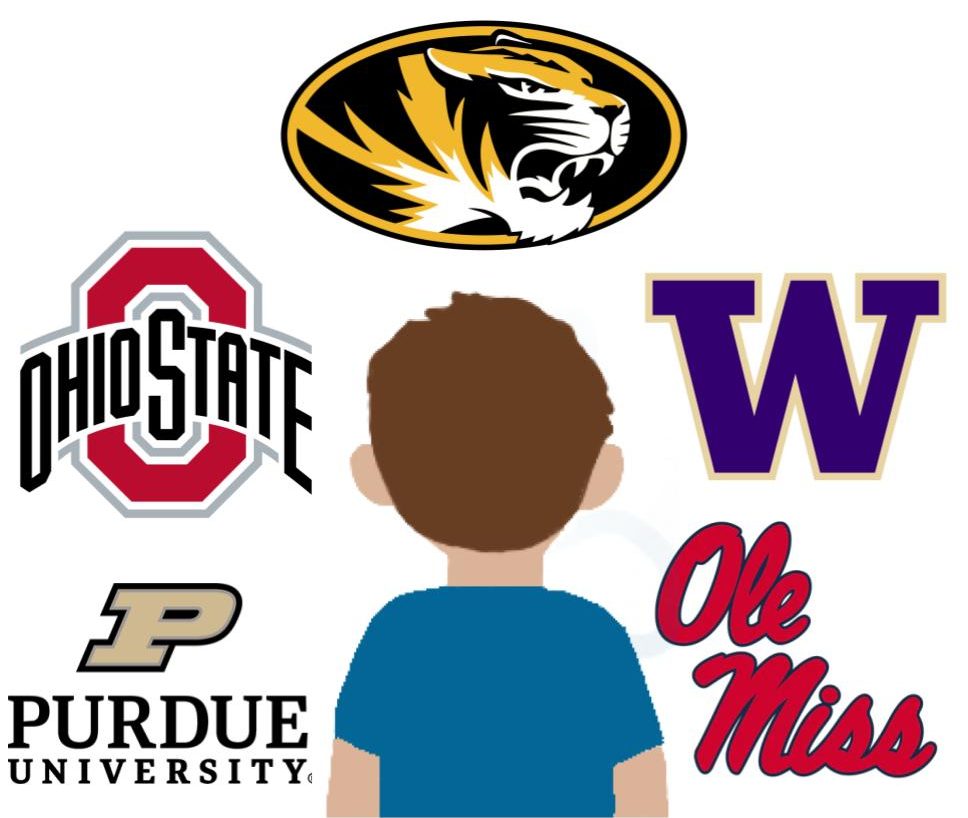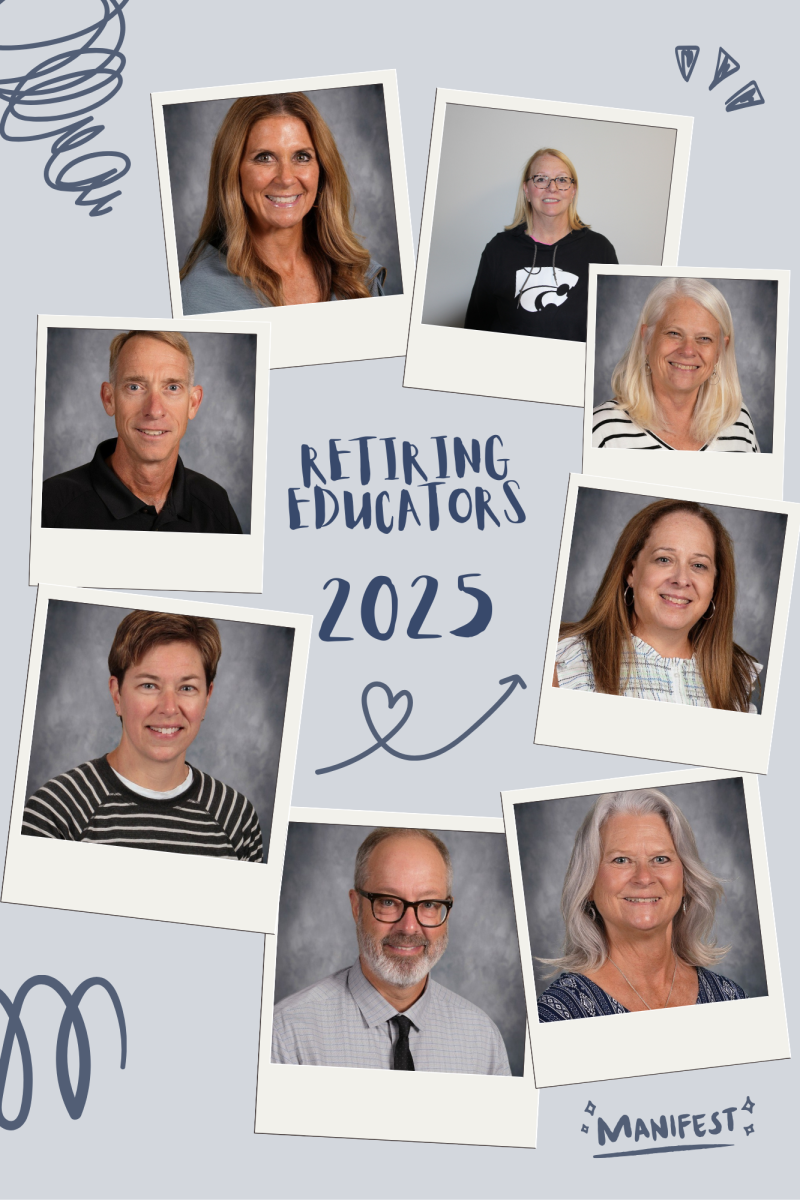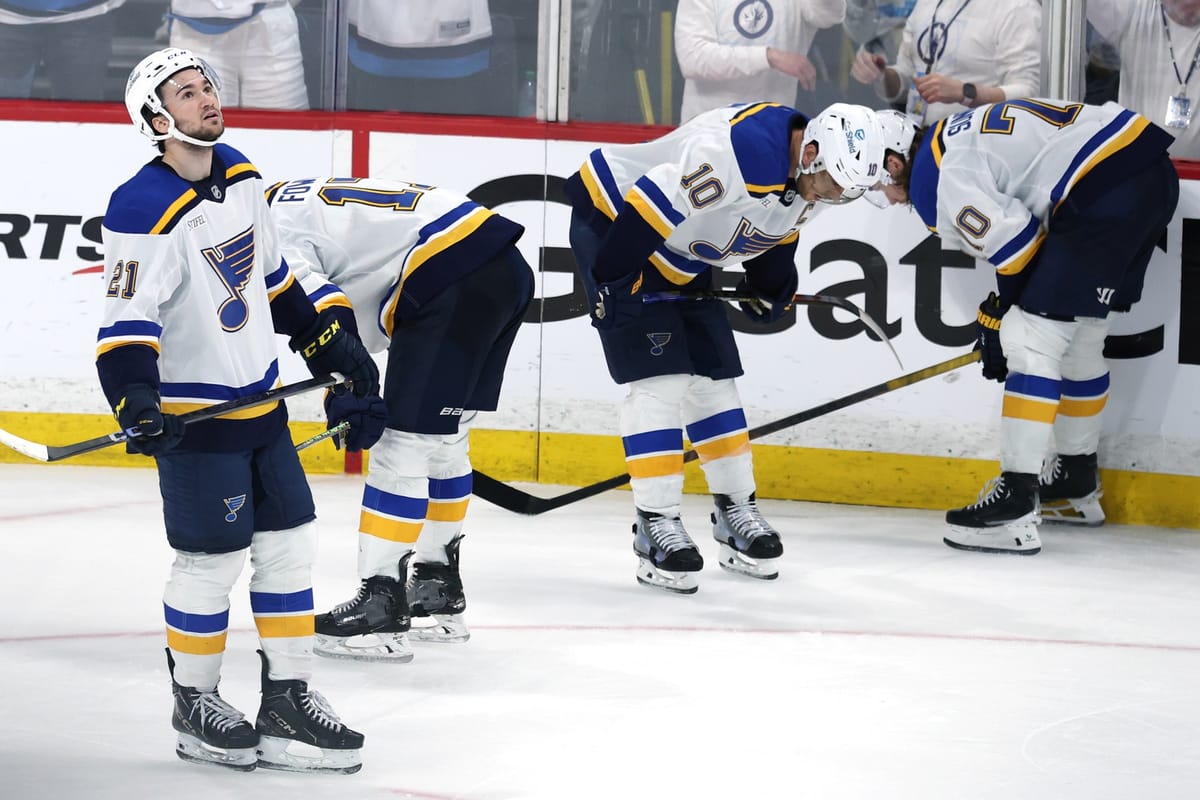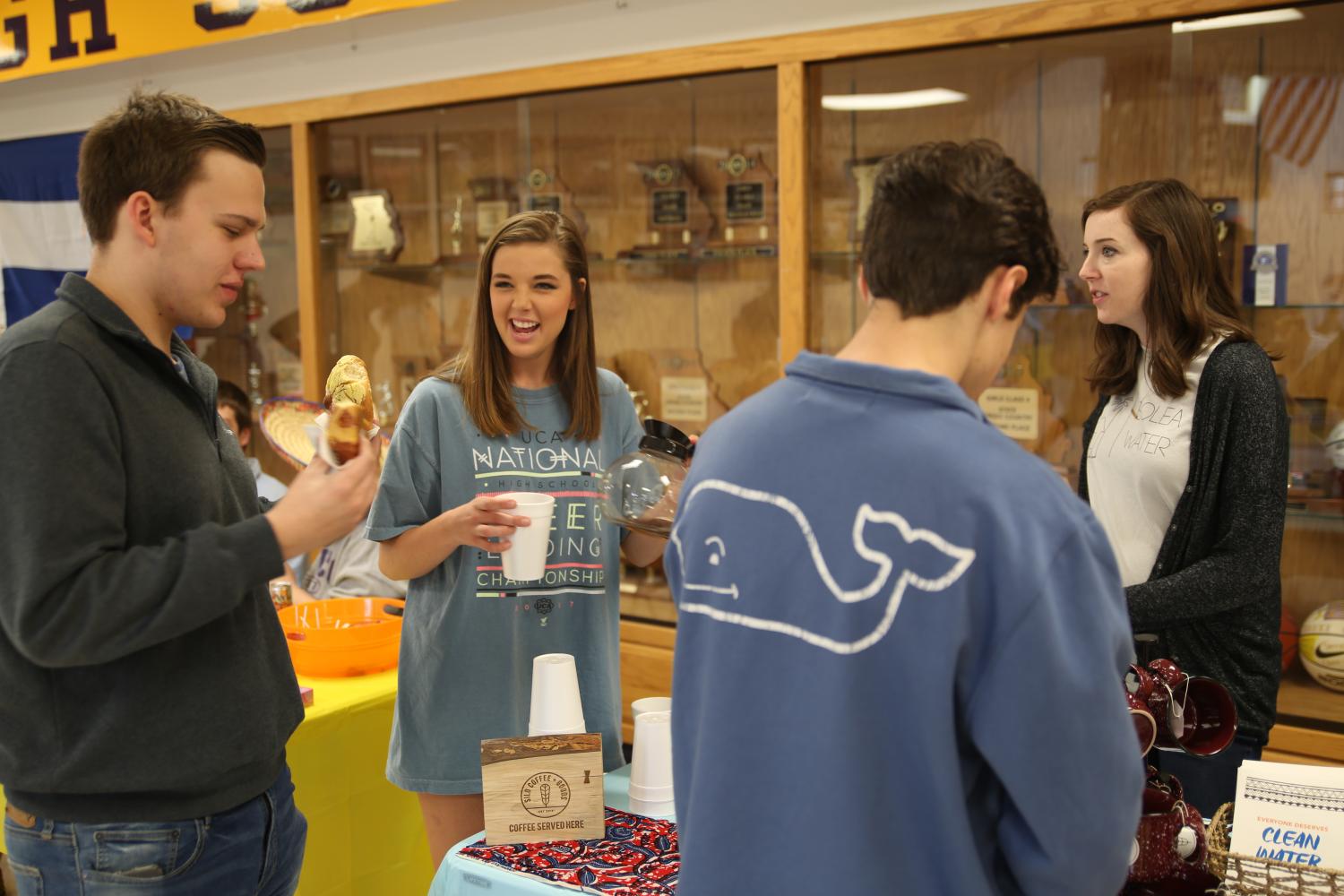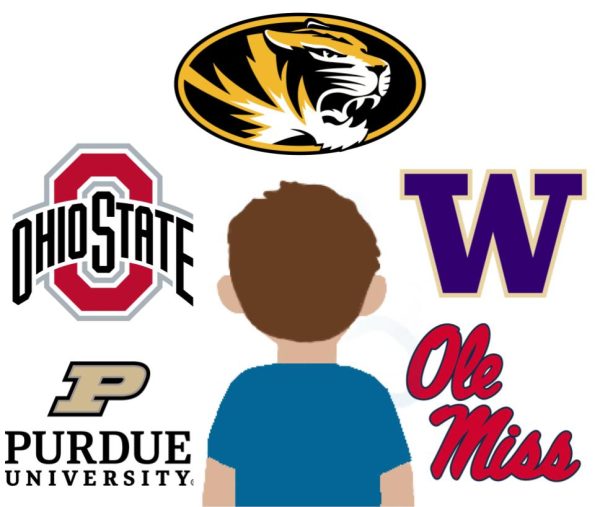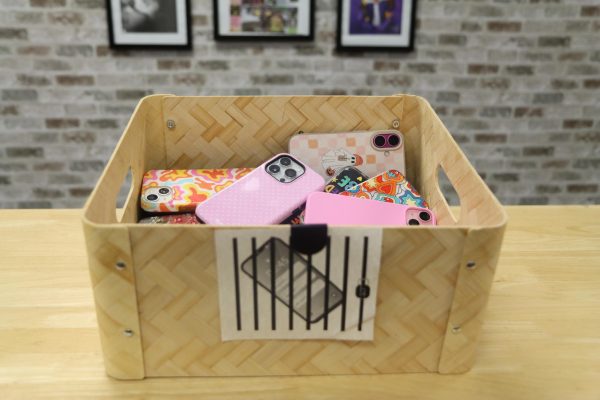Pitching in
Students pitch in to help out local foundation and educate developing countries
Rachael Burchett meets with Spanish students Zack Thompson (12) and Ashley Jaspers (12) at the Solea Water table in the Spanish Market, March 27.
The Science and Spanish departments are working to connect student learning to the larger world. During the month of March alone, the Spanish 4 students hosted the third annual for Global Poverty Awareness and Activism Fair, March 8 and the Spanish Market, March 27, for lower-level Spanish classes and the larger EHS community.
“I wasn’t aware of all these situations in these countries with these issues in these impoverished countries, but now–after recognizing all of these conflicts and serious issues–it makes me really care,” Nathan Koenig, Spanish 3 student, said.
The GPAAF gave Spanish 4 students the opportunity to reflect on global poverty by creating presentations and sharing them with the community. Just a few weeks later, a fundraiser for Solea Water began, allowing students to make a direct impact on global poverty.
Clean water is unavailable to 783 million people across the world, according the United Nations. Up to 80 percent of illnesses in developing areas are caused by a lack of clean water, according to The Water Project. The term to used describe this is called water poverty.
“We use a term called ‘water poverty’ because not having clean water doesn’t just affect water, it affects everything. It means that kids can’t go to school because they are staying home sick from drinking the water,” Rachael Burchett, executive director for Solea Water, said. “It means women have to walk miles every day to find water for their families. It means a lack of health, education and economic opportunities.”
Lafayette graduate Burchett founded Solea Water, a St. Louis-based nonprofit dedicated to providing clean water for developing areas in Latin America. She decided to found the then-titled, “Water for Panama” after she visited Panama and experienced everything the country had to offer.
“I went to Panama when I was 16, fell in love with the people, the place and I just felt like I had a calling to do something there,” Burchett said. “As a junior and senior, I started fundraising and wanted to do more with it, so we fundraised for a couple of years until the end of my high school time. By the beginning of my freshman year in college, we turned it into an actual nonprofit.”
Solea’s current project in Haiti involves a volunteer monitoring group consisting of four people whose job is to monitor water quality in a small village in Haiti called Cotin. This group asked Solea for a microscope to demonstrate to the locals the difference between clean and dirty water.
“They knew that if we looked at the water under a microscope, we could see the bacteria and educate the people on what is making them sick and why,” Burchett said.
In order to get a microscope, Rachael contacted her former teachers, including AnnMarie Gilman assistant principal. Gilman turned to the students giving the opportunity to donate and help out the cause.
“The educator in me is always looking for a connection to benefit students so they are thinking expands globally. There is power in one person to change the world, and Rachael is one personal example of that,” Gilman said. “Six years later, I see the impact she’s had. She’s saving lives! So if students here could understand that in just a few years they could do something like that, that’s a lesson I can’t teach in a classroom.”
In order to raise the necessary funds for the microscope, both the Science and Spanish departments held separate fundraisers during March. The Science Department showed all Science classes a presentation on water poverty, who Solea is and what their mission is. Afterwards, the teachers left canisters where students could donate change to Solea.
By the end of the fundraisers, both the Spanish Market and the Science Department’s collections proved to be big successes. Students raised about 200 dollars for Solea, which is enough to purchase a microscope and a travel case for it.
Gail Haynes, chemistry teacher, organized the Science Department’s fundraiser and–after seeing the presentation and learning about Solea–was glad to help. She was eager to use it as a learning experience for students.
“Even if a kid doesn’t donate money, I hope they realize, ‘Gosh, there are really people out there who don’t even know about microorganisms,’” Haynes said. “We are lucky to live in a country where everyone is educated on that.”
Waterborne pathogens are microorganisms that primarily travel via contaminated water, and pathogens such as typhoid, hepatitis, cholera and chronic diarrhea are common in Haiti’s water. In Haiti, 22 percent of the people who contract cholera die, and roughly 16 percent of deaths of children under five are due to waterborne pathogens.
Anna Grahlherr, student aid, created the canisters that would be used to collect the money. She was especially motivated after finding out about Solea and their mission.
“Education is one of the most important things we can offer. If we educate at home that people abroad need help, it’s more likely that people abroad will get that help through education,” Grahlherr said. “It’s like a circle-around effect; where if people here know that in other countries, they don’t have necessary tools or resources and that it’s a huge problem, we’ll be more likely to help out.”
The Spanish Department raised funds for Solea by donating around 330 dollars of the profits made from the Spanish Market this year to Solea. This is the third year that profits from the market have benefited Solea.
“One of our biggest goals in Spanish is to help students have a wider worldview and to participate in the global community. We start by teaching them the language, but it doesn’t really fit unless we teach them about other cultures. It’s important for every person for development, even beyond high school, to learn about how other people in the world live,” Julie Weitzel, Spanish teacher, said. “It gives you a better perception of who you are and how you fit in with the big global community. That’s one of the big reasons we do this project, because it’s important to do projects at the global level and connect people immediately with global issues”
Spanish students recognized the importance of helping Solea and that a big part of what they learn in Spanish relates directly to it.
“A big thing for Spanish is cultural awareness,” Ashleigh Abbott, Spanish student, said. “A lot of people don’t realize there is poverty going on around us, so being able to donate is a big deal.”
Solea Water has also helped students realize that they may have been taking what they have for granted and to understand the importance of donating and helping out the less fortunate.
“In other countries, obviously they don’t have enough, and that’s why we are trying to help them,” Caleb Biggs, Spanish 4 student, said. “I think it’s big for students to really understand the issues that are going on around other parts of the world, to understand and be thankful for what they have, to try and give some of that to other people and to learn that other people have issues that we don’t really have.”
Water poverty is not just a foreign issue; Flint, Michigan has been without clean water for two years, and it is projected to take another two years to have access to clean water again. Crisies such as Flint will become more and more common without the assistance of the Environmental Protection Agency, which President Trump is attempting to shut down.
“It’s important because even if it’s not happening in Eureka, Missouri,” Madilynn Seiler, Spanish 4 student, said. “We have to be responsible for not just the people in Eureka but everyone around the world, especially when everybody’s affected by it.”
Recognizing the cause and effect of not having access to clean water helped some students understand why they were helping Solea.
“People all around the world don’t have access to clean water, but we take it for granted. We brush our teeth, we drink it, we don’t really have to worry about it,” Nicole Walker, Spanish 4 student, said. “Other people have contaminated water, which makes them too sick to go to school or work; they keep getting poorer and poorer.”
Aside from donating, students realized that they were also making an impact by raising awareness for Solea and its cause.
“Not only are we donating, we are getting the name out. Solea, along with other donations, can grow as an organization and that’ll be very beneficial to the people and villages they help out,” Phil Sisco, Spanish 4 student, said. “I think many of the students here, especially the Spanish students that studied it, understand that this is a real problem and not something we can just hide from. We have to do what we can to help out.”
To find out more about current Solea projects and how to get involved, visit http://www.soleawater.org/
Your donation will support the student journalists of Eureka High School - MO. Your contribution will allow us to purchase equipment and cover our annual website hosting costs.
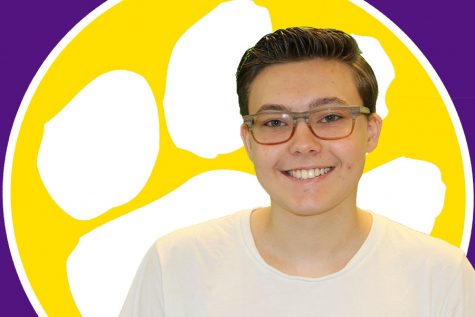
This is Tyler’s third semester on the EHS hub staff. He is the technology section Editor. You can follow him on twitter @tpriceEHS_hub. His hobbies include...


